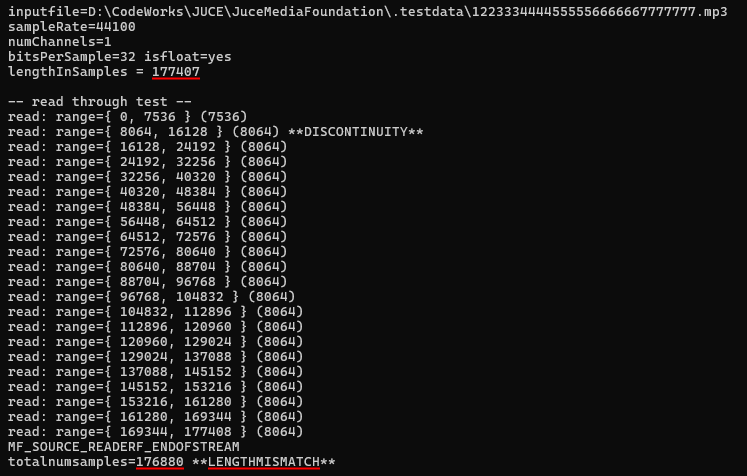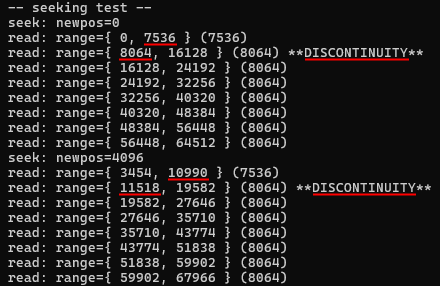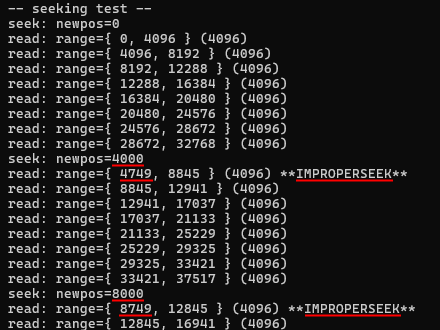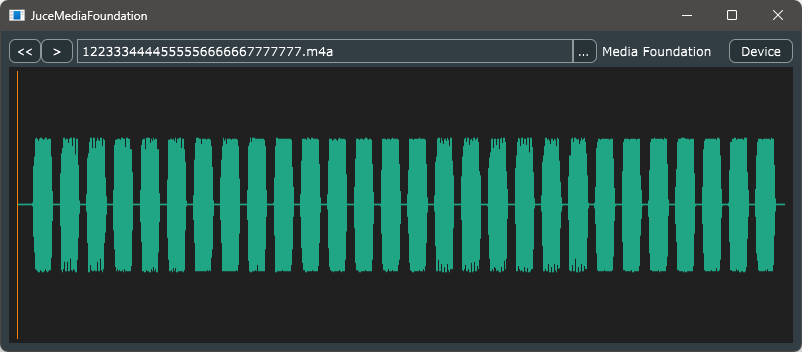- Table of Contents
- 1. Motivation and Objective
- 2. The experiment: TestMFSourceReader
- 3. The practical implementation: JuceMediaFoundation
- 4. Conclusion
- Written by
- License
JUCE provides the WindowsMediaAudioFormat class. It uses the Windows Media Format SDK (WMFSDK) and can handle many of the media formats supported by the Windows platform, but newer codecs added in Windows 10 and later are provided as Media Foundation Transform (MFT), so the WMFSDK cannot support them. Therefore, I tried to implement my own AudioFormat class using the newer Media Foundation API.
In order to get the AudioFormat form, it requires the ability to seek with sample precision, but I encountered some problems.
- inaccurate media length
- inaccurate timestamps
- improper seek
These behaviors seemed to vary depending on the media format. So I did some experiments to find media formats that worked well, and finally, I implemented practical MediaFoundationAudioFormat class.
This small program uses the MFSourceReader provided by the Media Foundation API to open media files and examine their behavior.
- whether the media file can be opened, and the format and media length can be retrieved correctly
- whether the timestamp of the sample buffer can be obtained correctly
- whether the actual position after the seek is appropriate
There may be a mismatch between the media length obtained from the presentation attribute and the total number of samples read out.
When reading sample buffers successively, the timestamps obtained may be discontinuous.
Since the MFSourceReader does not guarantee sample-accurate seek, it is necessary to advance the stream to the desired position after seek. Therefore, it is desirable that the actual position after seeking the stream is the same as or earlier than the specified position. However, the actual position may be later than that.
| media format | length mismatch | discontinuity | improper seeking |
|---|---|---|---|
| FLAC | 😡 | 😊 | 😡 |
| AAC (.m4a, .mp4) | 😊 | 😊 | 😊 |
| ALAC (.m4a) | 😡 | 😡 | 😡 |
| MP3 | 😡 | 😡 | 😊 |
| WAV | 😊 | 😊 | 😊 |
It works well with AAC (m4a, mp4). Other formats seem to be better handled by the classes already in JUCE.
Based on the experiments, I prototyped a more practical MediaFoundationAudioFormat class and integrated it into a simple application. This application was created using JUCE 7.0.8 and uses the AudioFormatReader class for waveform thumbnails and playback, respectively.
The MediaFoundationAudioFormat class handles only the AAC (.m4a, .mp4) format, but I have found that it does not work well with the ALAC format, which has the same .m4a extension.
All pain and no gain.
CC0 1.0 Universal



